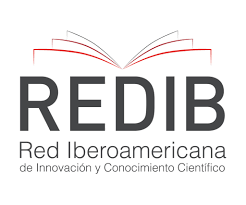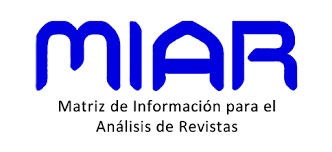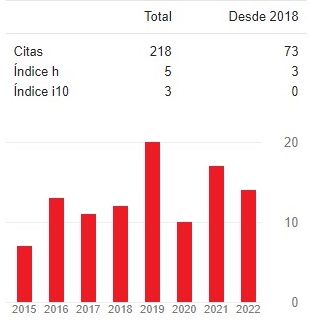"Alter Christus": Edith Stein sobre las fuentes litúrgicas del "Bildung"
DOI:
https://doi.org/10.51743/cpe.463Palabras clave:
antropología, Bildung, eucaristía, gracia, liturgia, personaResumen
Edith Stein pensaba que una visión adecuada de la educación, Bildung, no sólo debería abarcar las potencias y el propósito naturales de la persona humana, sino también sus potencias sobrenaturales. Para ella, el telos sobrenatural de la educación de una persona es que se convierta en una imagen y un icono únicos de Cristo. Esta meta trascendente requiere medios igualmente sobrenaturales para alcanzarla, y en este ensayo se examina el papel fundamental que desempeñan el sacramento de la eucaristía y la liturgia de la Iglesia en general para alcanzar esa meta, al tiempo que se hace una sugerencia metodológica sobre la interpretación de los textos teológicos de Stein.
Descargas
Citas
Betschart, C. (2016). Der Teresianische Einfluss afu Edith Steins Anthropologie. Aufgezeigt an den Begriffspaaren ‘zentral-peripher’ und ‘tief-oberflächlich’. Freiburger Zeitschrfit für Philosophie und Theologie (63), pp.254-269.
Betschart, C. (2022). L’humain, image filiale de Dieu. Une anthropologie théologique en dialogue avec l’exégèse. Éditions du Cerf.
Betschart, C. (2022). Imago Dei, Ontological and Relational Interpretations: Introducing Edith Stein to the Debate. Warsaw Theological Studies (35), pp. 82-100. DOI: https://doi.org/10.30439/WST.2022.1.5
Blowers, P. (1992). Maximus the Confessor, Gregory of Nyssa, and the Concept of ‘Perpetual Progress. Vigiliae christianae (46), pp. 151-171. DOI: https://doi.org/10.1163/157007292X00052
Calcagno, A. (2014). Lived Experience from the Inside-Out: Social and Political Philosophy in Edith Stein. Duquesne University Press.
de Andia, Y. Pseudo-Dionysius the Areopagite and Maximus the Confessor. In P. Allen (Ed.). The Oxford Handbook of Maximus the Confessor (pp. 177-193). Oxford.
Heidegger, M. (1962). Being and Time. Harper and Perennial.
Herbstrith, W. (1992). Edith Stein: A Biography. Ignatius Press.
Janz, D. (2002). A Reformation Reader. Fortress Press.
Lebech, Mette. (2015). The Philosophy of Edith Stein: From Phenomenology to Metaphysics. Oxford. DOI: https://doi.org/10.3726/978-3-0353-0710-8
Lebech, Mette. (2004). Study Guide to Edith Stein’s Philosophy of Psychology and the Humanities.” Yearbook of the Irish Philosophical Society, pp. 40-76.
Maskulak, M. (2008). Edith Stein and Simone Weil: Reflections for a Theology and Spirituality of the Cross. Theology Today (64), pp. 445-457. DOI: https://doi.org/10.1177/004057360806400403
Maskulak, M. (2012). Edith Stein: A Proponent of Human Community and a Voice for Social Change. Logos: A Journal of Catholic Thought and Culture (15), pp. 64-83. DOI: https://doi.org/10.1353/log.2012.0017
Motia, M. (2002). Dionysius and Gregory of Nyssa. In M. Edwards (Ed.). Oxford Handbook of Dionysius the Areopagite (pp. 109-118). Oxford. DOI: https://doi.org/10.1093/oxfordhb/9780198810797.013.6
Stein, E. (1989). On the Problem of Empathy. ICS Publications. DOI: https://doi.org/10.1007/978-94-009-1051-5
Stein, E. (1992). A Hidden Life: Essays, Meditations, Spiritual Texts. ICS Publications.
Stein, E. (1994). Der Aufbau der menschlichen Person. Herder.
Stein, E. (1996). Woman. ICS Publications.
Stein, E. (2001). Bildung und Entfaltung der Individualität: Edith Stein Gesamtausgabe 16. Herder.
Stein, E. (2002). Finite and Eternal Being. ICS Publications.
Stein, E. (2003). Wege der gotteserkenntnis. Herder.
Wallenfang, D. (2017). Human and Divine Being: A study on the Theological Anthropology of Edith Stein. Cascade Books.
Descargas
Publicado
Cómo citar
Número
Sección
Licencia
El autor conserva los derechos patrimoniales (copyright) de las obras publicadas, y la revista favorece y permite la reutilización de las mismas, desde el preprint. Las obras se publican en la edición electrónica de la revista bajo una licencia “Creative Commons Atribución/Reconocimiento-NoComercial 4.0 Licencia Pública Internacional — CC BY-NC 4.0”, y se pueden copiar, usar, difundir, transmitir y exponer públicamente .
Los autor/es transfieren parcialmente los derechos de propiedad del presente trabajo para las ediciones impresas y online, siempre que:
- Se cite la autoría y la fuente original de su publicación (revista, editorial y URL de la obra).
- No se usen para fines comerciales.
- Se mencione la existencia y especificaciones de esta licencia de uso.
Se declara además haber respetado los principios éticos de investigación y estar libre de cualquier conflicto de intereses.
«C.P.E.» anima a los autores y a la comunidad científica a la máxima promoción y difusión de los trabajos en su versión definitiva a través de:
1) Su lista de contactos (mails) y redes sociales (Facebook, Twitter, LinkedIn…).
2) Repositorio institucional de su Universidad y repositorios públicos (Mendeley, Cosis…).
3) Redes sociales científicas (ResearchGate, Academia.edu, Kudos...).
4) Web personal o institucional, blog, etc.
5) Google Scholar, ORCID, ResearchID, ScopusID, Dimensions, PlumX...
6) Ejemplares impresos adquiridos directamente y enviados a especialistas para su lectura y posterior citación si procede.




















1.png)
1.png)

1.png)





.png)
.png)

.png)
1.png)
1.png)
